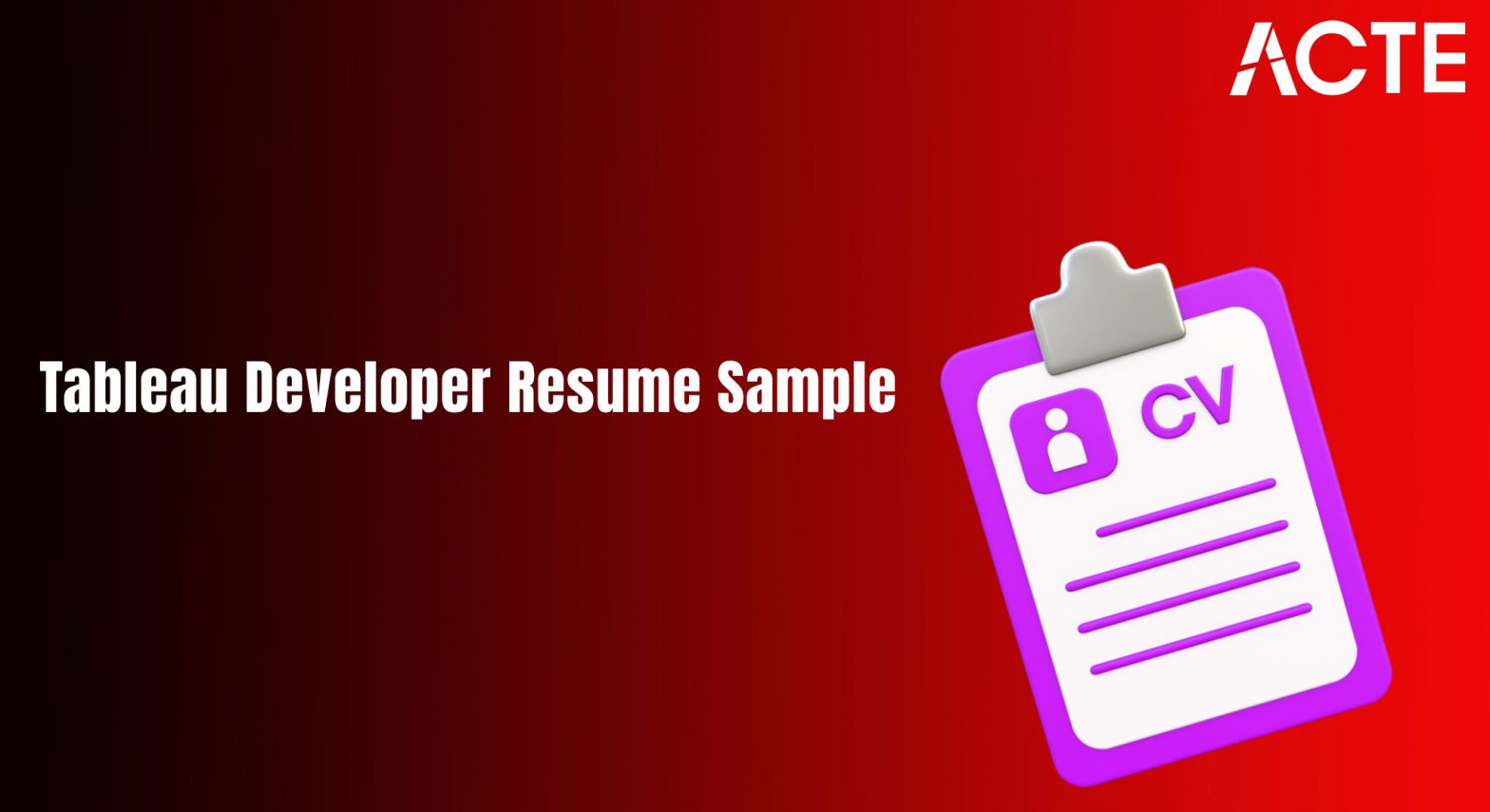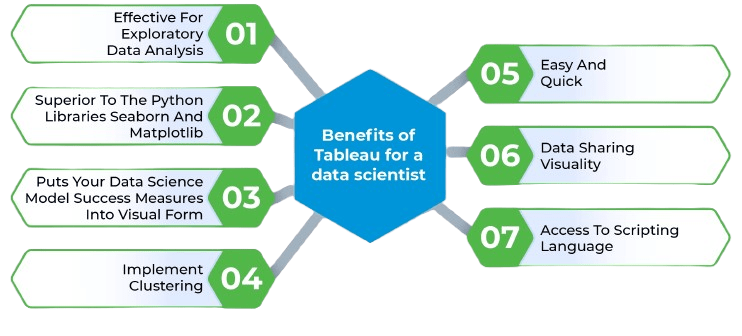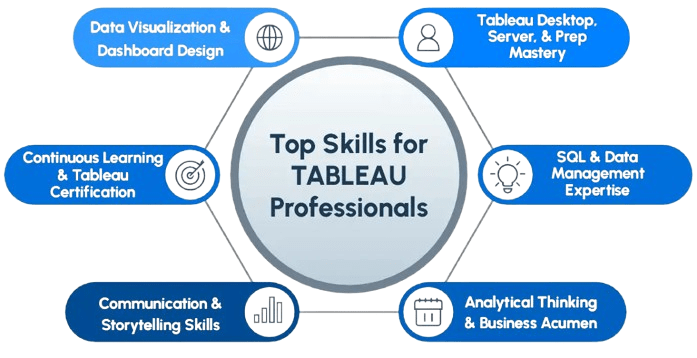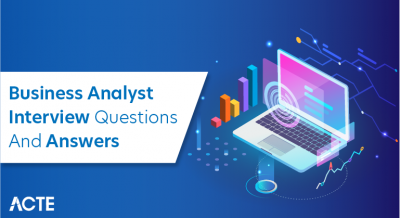
- Introduction
- What is a Tableau Developer?
- Why is a Good Tableau Developer Resume Essential?
- Key Skills for a Tableau Developer Resume in 2025
- Tableau Developer Resume Structure
- Tableau Developer Resume Sample for 2025
- How to Tailor Your Tableau Developer Resume for Specific Job Roles
- Common Mistakes to Avoid in Your Tableau Developer Resume
Introduction
A Tableau Developer is a skilled professional who specializes in using Tableau, a powerful data visualization tool, to transform raw data into meaningful insights. Their primary role involves creating interactive, user-friendly dashboards and reports that enable organizations to make data-driven decisions. Tableau Developers work closely with business analysts, data engineers, and stakeholders to understand business requirements and translate them into visually appealing and actionable visualizations. Business Analyst Training plays a crucial role in helping professionals effectively collaborate and communicate insights derived from data. They are proficient in various aspects of Tableau, including data blending, creating calculated fields, and utilizing Tableau’s diverse features like filters, parameters, and dashboard actions. Tableau Developers also have a strong understanding of data sources, whether it’s working with databases like SQL, Excel files, or cloud-based data sources, ensuring smooth integration and efficient performance. Additionally, they are adept at optimizing dashboards for speed and usability, troubleshooting issues, and continuously improving the visualizations to align with evolving business needs. The role of a Tableau Developer requires not only technical expertise but also creativity and a keen understanding of the end-user’s perspective to deliver impactful data stories that drive business strategies. With the growing demand for data analysis across industries, Tableau Developers play a crucial role in making complex data accessible and actionable for organizations.
Do You Want to Learn More About Business Analyst? Get Info From Our Business Analyst Training Today!
What is a Tableau Developer?
- Data Visualization Design: Tableau Developers create interactive and visually appealing dashboards, reports, and charts that transform raw data into clear insights for business users.
- Data Integration: They work with various data sources, including databases (SQL, Oracle), spreadsheets (Excel), and cloud platforms (Google Analytics, Salesforce), ensuring seamless integration for accurate data representation. Exploring Tableau Data Science enables them to leverage advanced analytics and visualization techniques to derive deeper insights from these diverse data sources.
- Data Modeling & Analysis: They build data models, perform data wrangling, and apply advanced calculations to derive meaningful insights from complex datasets.
A Tableau Developer is a professional who specializes in using Tableau, a powerful data visualization tool, to create interactive and insightful dashboards that help businesses make informed decisions. They transform complex data into visual representations that are easy to interpret and understand. Here are the key responsibilities and aspects of a Tableau Developer’s role:

- User Experience Optimization: Tableau Developers focus on creating dashboards that are not only functional but also user-friendly, ensuring an intuitive experience for business users with filters, actions, and interactive elements.
- Performance Tuning: They optimize the performance of Tableau workbooks by reducing loading times and improving the overall efficiency of dashboards for better user experience.
- Collaboration & Stakeholder Communication: Tableau Developers collaborate with business analysts, data engineers, and other stakeholders to understand business needs, ensuring that visualizations align with organizational goals and strategies.
Why is a Good Tableau Developer Resume Essential?
A good Tableau Developer resume is essential because it serves as the first impression for potential employers, showcasing the candidate’s technical expertise, experience, and ability to transform complex data into meaningful visualizations. In the competitive field of data analytics and business intelligence, a well-crafted resume helps candidates stand out by highlighting key skills such as proficiency in Tableau, data visualization, data blending, and advanced calculations. It also provides a clear picture of their experience working with various data sources, databases, and cloud platforms. Actions in Tableau guide them in creating dynamic visualizations and interactive dashboards, enhancing their ability to communicate insights effectively across different data environments. A strong resume not only demonstrates technical skills but also emphasizes the candidate’s problem-solving abilities, communication skills, and understanding of business needs. Employers look for Tableau Developers who can deliver high-performance dashboards and collaborate with cross-functional teams to drive data-driven decision-making. Additionally, a detailed and polished resume reflects professionalism and attention to detail, two qualities highly valued in this field. In essence, a good Tableau Developer resume acts as a marketing tool that can open doors to job opportunities, making it crucial for candidates to present their experience, skills, and accomplishments in a concise, impactful way that aligns with the needs of hiring organizations.
Would You Like to Know More About Business Analyst? Sign Up For Our Business Analyst Training Now!
Key Skills for a Tableau Developer Resume in 2025
- Advanced Tableau Skills: Expertise in Tableau’s core features such as data blending, creating calculated fields, advanced charts, and building interactive dashboards and reports is crucial.
- Data Integration and ETL: Proficiency in connecting Tableau with diverse data sources, including databases (SQL, NoSQL), cloud services (AWS, Google Cloud), and APIs, along with data extraction, transformation, and loading (ETL) processes. Compare Power BI vs Excel also plays a key role in understanding different tools’ capabilities, helping professionals make informed decisions when integrating data from various platforms into Tableau for optimal visualization.
- SQL and Database Knowledge: Strong command of SQL for querying relational databases, optimizing queries, and writing complex joins, as well as understanding of data structures and normalization.
As the role of a Tableau Developer evolves in response to advancements in data analytics and visualization tools, the key skills required to excel in the field continue to grow. In 2025, a strong Tableau Developer resume should highlight a combination of technical proficiency, creativity, and the ability to work with complex data sets. Here are six essential skills that should be featured on a Tableau Developer resume:

- Performance Optimization: Skills in optimizing Tableau dashboards and workbooks to ensure fast performance, particularly for large data sets, by leveraging techniques like extracts, aggregations, and query optimizations.
- Data Analysis and Problem-Solving: Ability to analyze data and translate complex business requirements into actionable insights, including the use of Tableau’s advanced calculations, parameters, and level-of-detail (LOD) expressions.
- Collaboration and Communication: Strong interpersonal skills to collaborate effectively with business stakeholders, understand their needs, and communicate complex insights in a clear, understandable manner to non-technical users.
- Contact Information: Include your full name, phone number, email address, LinkedIn profile, and portfolio/GitHub link (if applicable).
- Professional Summary: A brief overview of your experience with Tableau, key skills, and your ability to deliver actionable data insights through interactive dashboards and visualizations.
- Skills: Highlight key technical skills, such as proficiency in Tableau Desktop and Server, SQL, data blending, data modeling, performance optimization, and experience with cloud platforms like AWS or Google Cloud. Power BI Consultant career path can also offer valuable insights into the skills and knowledge required to excel in the data visualization field, further enhancing your expertise in Tableau and other business intelligence tools.
- Professional Experience: List relevant positions with job titles, company names, and dates of employment, detailing accomplishments like designing dashboards, improving performance, and driving data-driven decision-making.
- Education & Certifications: Mention your degree(s), relevant coursework, and Tableau-specific certifications (e.g., Tableau Desktop Specialist, Certified Professional).
- Projects & Achievements: Showcase personal or freelance Tableau projects, highlighting specific visualizations created and their impact on business performance or decision-making.
Tableau Developer Resume Structure
A well-structured Tableau Developer resume is essential to make a strong impression on potential employers. It should begin with a concise Contact Information section, including your name, phone number, email, and LinkedIn profile or portfolio link. Next, the Professional Summary should highlight your years of experience with Tableau, key skills, and a brief overview of your expertise in data visualization, dashboard creation, and data integration. Following that, a Skills section should emphasize your proficiency in Tableau, SQL, data modeling, ETL processes, and any additional tools or technologies like Python or cloud platforms. The Experience section should list your relevant work history, focusing on your accomplishments with Tableau, such as creating interactive dashboards, optimizing performance, and collaborating with cross-functional teams. Business Analyst Training can further enhance your ability to highlight key skills and experiences that align with business needs and demonstrate your value to potential employers. Quantifying achievements with metrics (e.g., improved dashboard efficiency by 30%) adds more impact. Afterward, the Education section should include details of your degree(s), certifications, and any relevant training, particularly Tableau-specific certifications like Tableau Desktop Specialist or Certified Professional. Finally, if applicable, a Projects section can showcase personal or freelance work that demonstrates your Tableau expertise, especially if you’re a recent graduate or changing careers. The resume should conclude with any Additional Information, like language proficiency or professional affiliations.
Want to Pursue a Business Intelligence Master’s Degree? Enroll For Business Intelligence Master Program Training Course Today!
Tableau Developer Resume Sample for 2025
A well-structured Tableau Developer resume in 2025 should effectively showcase your technical expertise, hands-on experience, and ability to create actionable insights through data visualization. It should highlight your proficiency in Tableau and related tools, your understanding of data analytics, and your capacity to work on complex projects that drive business decisions. Below is a sample breakdown of key sections to include in your resume:
How to Tailor Your Tableau Developer Resume for Specific Job Roles
Tailoring your Tableau Developer resume for specific job roles is key to standing out in a competitive job market. First, closely examine the job description to understand the skills and qualifications the employer is seeking. Highlight your experience and expertise that align with those specific requirements. For example, if the job emphasizes advanced Tableau functionalities, such as creating complex calculated fields or optimizing dashboard performance, make sure to feature those skills prominently in your resume. Similarly, if the role requires experience with specific databases like SQL, Oracle, or cloud-based platforms, emphasize your familiarity with those technologies. Don’t just focus on technical skills; tailor your professional summary to reflect how your previous work experience directly addresses the challenges or goals outlined in the job posting.If the job involves collaboration with cross-functional teams, demonstrate your ability to work with business analysts and stakeholders to transform data into actionable insights. Business Intelligence Architecture solutions play a key role in designing scalable systems that support data integration, analysis, and reporting, ensuring seamless collaboration and informed decision-making across teams. Additionally, incorporate keywords from the job description to pass through applicant tracking systems (ATS). Finally, if you have experience with specific industry sectors (e.g., finance, healthcare), make sure to highlight any relevant industry knowledge, as this can make you a more attractive candidate.
Want to Learn About Business Analyst? Explore Our Business AnalystInterview Questions and Answers Featuring the Most Frequently Asked Questions in Job Interviews.
Common Mistakes to Avoid in Your Tableau Developer Resume
When crafting your Tableau Developer resume, it’s crucial to avoid common mistakes that could hinder your chances of standing out to potential employers. One of the biggest errors is focusing too much on generic skills rather than highlighting the specific Tableau-related expertise that sets you apart. Avoid listing skills that are not relevant to the role, as this can clutter your resume and distract from your core competencies. Another mistake is failure to quantify achievements , always aim to include measurable results, such as improving dashboard performance by 30% or increasing reporting efficiency by 25%. This demonstrates the tangible impact you’ve had in previous roles. Additionally, neglecting to tailor your resume to the job description is a critical misstep; each role may require different skill sets or experience levels, and customizing your resume accordingly shows that you’ve thoroughly considered the employer’s needs. Business Analyst Training can help you understand the importance of aligning your resume with specific job requirements and demonstrate your expertise in the field. Spelling and grammar errors are also a common issue, as they give an impression of carelessness. Moreover, not including relevant certifications like Tableau Desktop Specialist or Tableau Certified Professional can make you appear less credible. Lastly, avoid overloading your resume with technical jargon; while it’s important to highlight your expertise, clarity and readability should always come first to ensure your resume resonates with both technical and non-technical readers.


